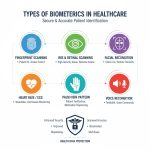Global Targeted Therapeutics Market
As stated in our extensive report, the Global Targeted Therapeutics Market accounted for USD 68.1 Billion in 2022 and is projected to reach a value of USD 80.9 Billion by 2030.
The global Targeted Therapeutics market refers to the market for pharmaceutical drugs and therapies specifically designed to target and treat certain diseases or conditions. These therapies target specific molecules, cells, or biological pathways involved in the development or progression of a particular disease. The Targeted Therapeutics market is growing rapidly due to the increasing prevalence of chronic diseases such as cancer, cardiovascular diseases, and autoimmune disorders. These conditions often require more effective and personalized treatment options, which targeted therapies can provide.
The market for Targeted Therapeutics has been growing rapidly in recent years as advances in biotechnology and genetics have allowed for a better understanding of disease mechanisms and the development of more targeted treatment approaches. This has led to the development of a wide range of targeted therapies, including monoclonal antibodies, small molecule inhibitors, gene therapies, and cell-based therapies. One of the key drivers of the Targeted Therapeutics market is the growing demand for more effective and personalized treatment options. Traditional treatments like chemotherapy can have significant side effects and limited efficacy in some patients. On the other hand, targeted therapies offer the potential for more precise and effective treatments that can be tailored to individual patients based on their specific disease characteristics.
Click To Get a Free Sample On the Research Study

These are the primary factors that must be considered to propel the growth of the global Targeted Therapeutics market. While the Targeted Therapeutics market holds great promise, some challenges must be overcome. One of the main challenges is the high cost of development and production. Targeted therapies often require extensive research and investment to identify appropriate targets, develop effective drugs, and conduct clinical trials. Additionally, the manufacturing process for these therapies can be complex and costly, leading to high treatment costs.
Key factors influencing Targeted Therapeutics Market Growth
The growth of the global Targeted Therapeutics market can be attributable to the following:
- Advancements in molecular biology and technology, such as genomics and proteomics, have provided a greater understanding of disease pathways and identification of specific molecular targets, leading to the development of more effective Targeted Therapeutics.
- Targeted therapies have shown significant potential in the treatment of these diseases by specifically targeting the underlying disease mechanisms, leading to improved treatment outcomes and reduced side effects. The increasing prevalence of chronic diseases is driving the demand for Targeted Therapeutics.
- Personalized medicine is an emerging approach to healthcare that involves tailoring medical treatment to the individual characteristics of each patient. Targeted therapies play a crucial role in personalized medicine by targeting specific molecular pathways that are unique to an individual’s disease. The increasing demand for personalized medicine is driving the growth of the Targeted Therapeutics market.
- Pharmaceutical companies and research institutions are investing heavily in research and development of Targeted Therapeutics. This investment is driven by the potential benefits of targeted therapies in terms of improved treatment outcomes, reduced side effects, and the potential to address unmet medical needs.
- Regulatory agencies, such as the U.S. Food and Drug Administration (FDA) and the European Medicines Agency (EMA), have adopted a more favorable approach towards the development and approval of Targeted Therapeutics. These agencies have implemented expedited review processes and designated targeted therapies as breakthrough therapies or orphan drugs, providing incentives for their development.
- Governments and private healthcare providers are increasing their expenditure on healthcare, particularly in developing countries. This increased expenditure is enabling the adoption of innovative treatments, including Targeted Therapeutics. The increasing healthcare expenditure is driving the growth of the Targeted Therapeutics market.
- Pharmaceutical companies are increasingly entering into collaborations and partnerships with research institutions and other industry players to accelerate the development and commercialization of Targeted Therapeutics. These collaborations and partnerships facilitate the sharing of resources, expertise, and technology, leading to faster development of targeted therapies.
North America Region to Lead the Market
North America Targeted Therapeutics market is getting more significant with maximum market share during the forecast period. The region’s strong position can be attributed to several factors, including a well-developed healthcare infrastructure, high healthcare expenditure, and favorable government initiatives to promote precision medicine. Additionally, leading pharmaceutical and biotechnology companies and robust research and development activities have contributed to North America’s market dominance. The region’s emphasis on personalized medicine and advancements in genomic research further support the growth of Targeted Therapeutics. However, increasing competition and regulatory challenges may pose potential hurdles in maintaining this dominance in the coming years.
Conclusion
The increasing prevalence of cancer and other chronic diseases and advancements in technology and personalized medicine positively influence the overall Targeted Therapeutics market.
Some of the key players in the Global Targeted Therapeutics Market include- Agenus Inc. (U.S.), Aurinia Pharmaceuticals Inc. (Canada), Celdara Medical LLC (U.S.), Pfizer Inc. (U.S.), Gilead Sciences Inc. (U.S.), Nektar Therapeutics Inc. (U.S.), F. Hoffmann-La Roche & Co. (Switzerland), Amgen Inc. (U.S.) and others.
![[Market Research Reports] – Research Google News Blog | VMR.Biz](https://www.vmr.biz/wp-content/uploads/2022/12/logo-removebg-preview.png)











